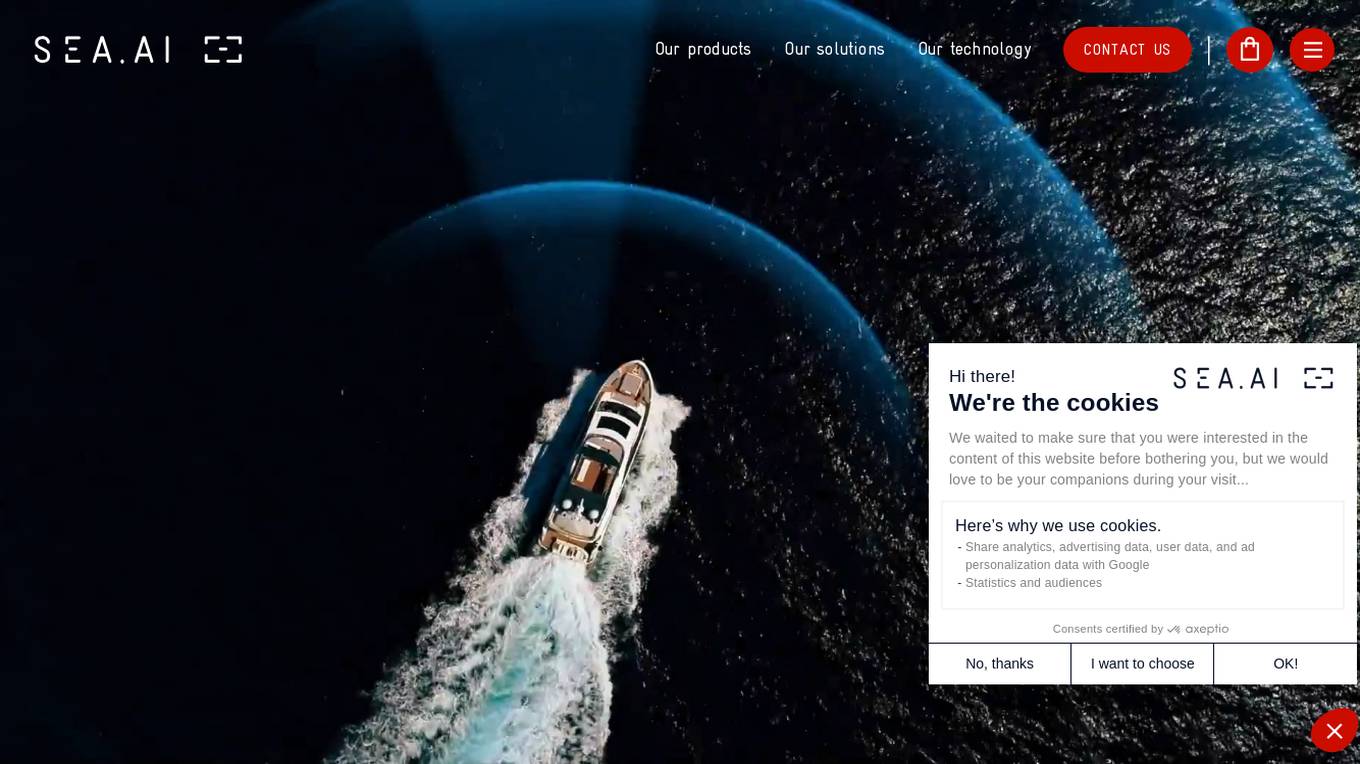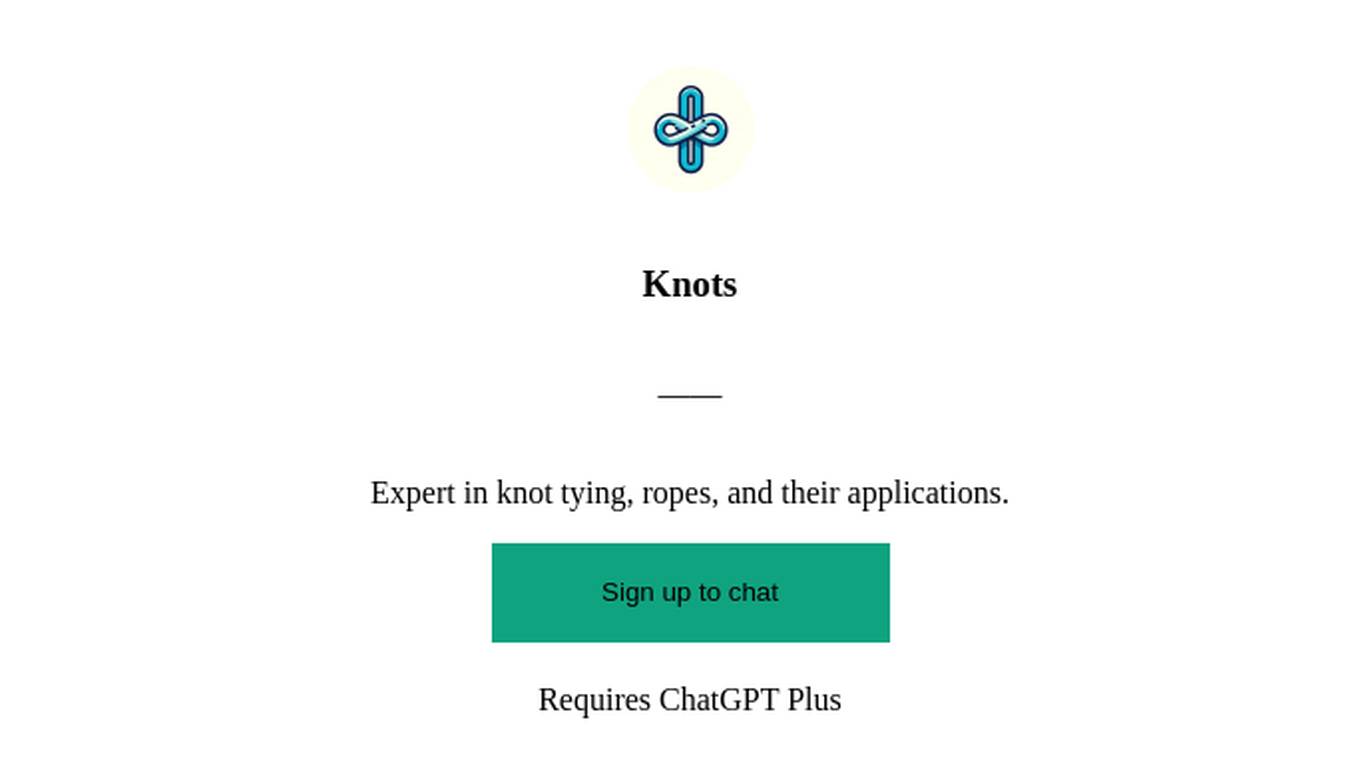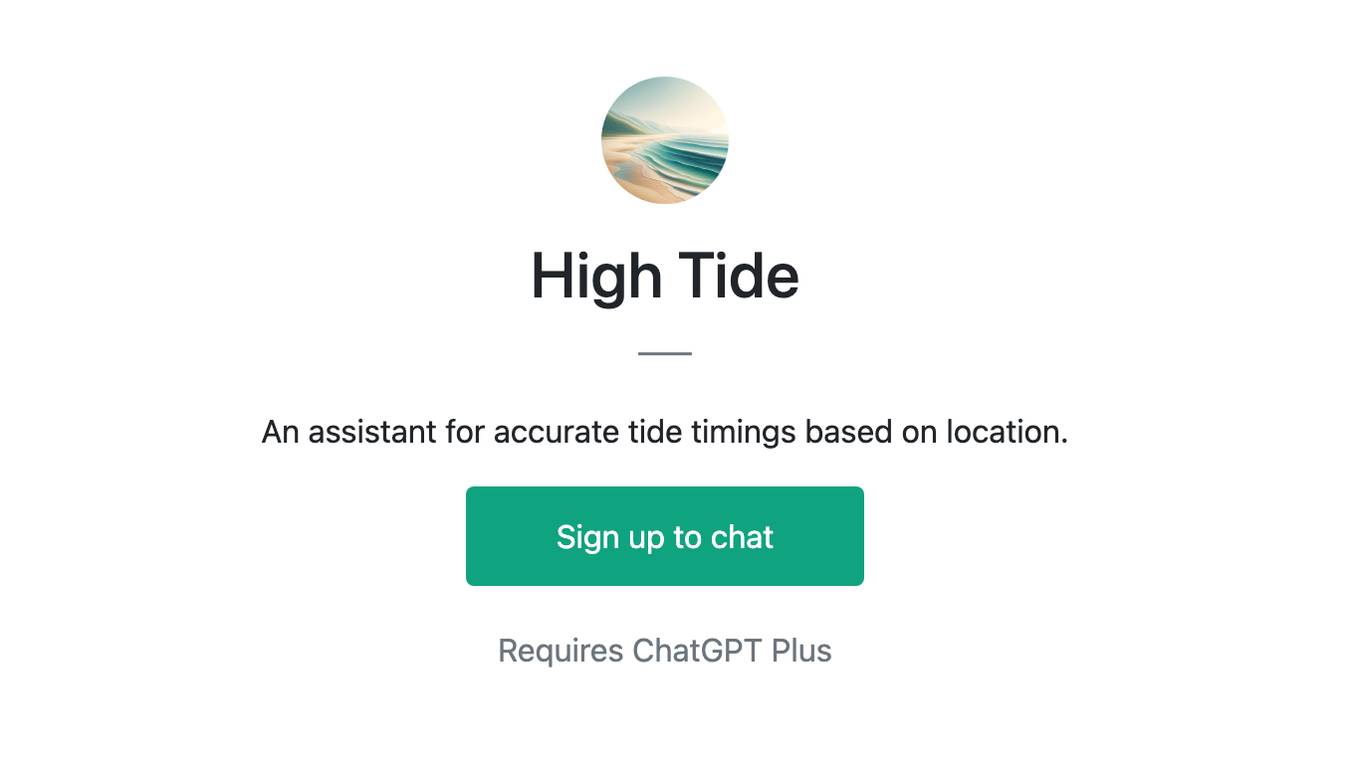Best AI tools for< Sailor >
Infographic
1 - AI tool Sites

SEA.AI
SEA.AI is an AI tool that provides Machine Vision for Safety at Sea. It utilizes the latest camera technology combined with artificial intelligence to detect and classify objects on the surface of the water, including unsignalled craft, floating obstacles, buoys, kayaks, and persons overboard. The application offers various solutions for sailing, commercial, motor, maritime surveillance, search & rescue, and government sectors. SEA.AI aims to enhance safety and convenience for sailors by leveraging AI technology for early detection of potential hazards at sea.
site
: 9.8k
0 - Open Source Tools
No tools available




